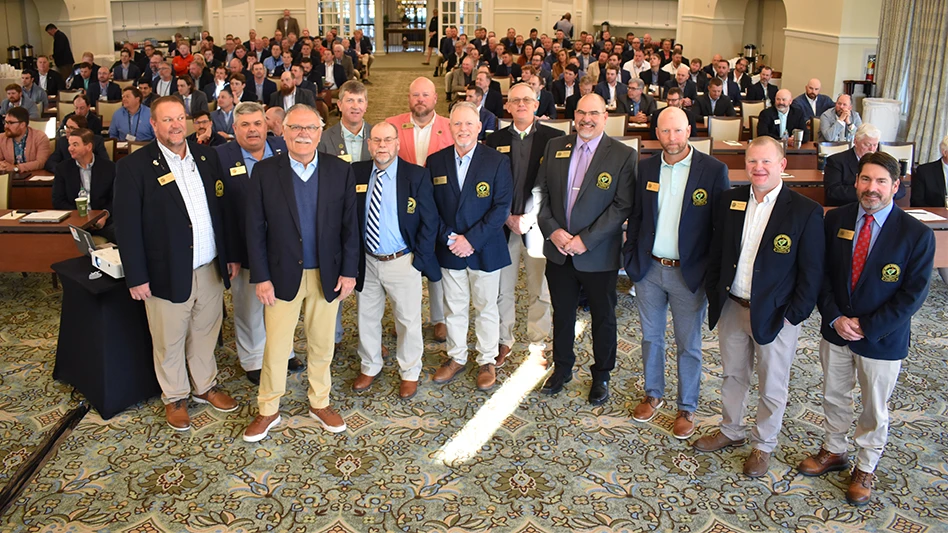Seniority matters
After reading Bob Milligan’s article, “Suggested reading,” (in the September issue on page 22), I thought about a situation regarding two of my employees.
Employee A has worked for us for about five years, and employee B has worked for us for three years. Last year, employee A left the grounds crew in early September to work in the clubhouse and didn’t complete the season with us. He returned this spring to continue working on the grounds crew. Employee B has worked three complete seasons for us, spring to fall.
This fall, because of budget constraints, we’ve reduced employee B’s hours, and he works part time now. We plan to release him at the end of the month.
Employee A still is employed full time and will continue to work until the end of the season. Employee B is upset that employee A is full time when employee A quit last year to work in another department. Employee A has been with us longer and has seniority over employee B, but employee B doesn’t see it that way because employee A left last season.
These are Latino employees, and seniority always seems to be a factor with them. I always have to be careful when I hire them back in the spring, so I bring them back according to when they were hired, or else they seem to be offended greatly.
Do you have any advice on how to handle employee B?
Jeff Johnson
Golf course superintendent
The Minikahda Club
Minneapolis, Minn.
Milligan’s response:
The key to employee management is to treat employees fairly. In addition to accepting that some decisions, no matter how well thought out or sound, have undesirable consequences, I have three suggestions. First, reiterate formally and informally to employee B why you made the decision. Acknowledge that his perception is valid but not the one you chose. Second, be patient.
Employee B’s feelings are genuine and not entirely unreasonable. Additional positive feedback and coaching would be in order. Third, be clear with employee B that the decision has been made, and although his feelings are valid, they aren’t an excuse for reduced job performance or for behaviors or statements that are detrimental to the club.
Play your course
I’m responding to John Walsh’s editorial, “Play more golf,” in the September issue (on page 6). I work for a private club, and it’s important for me to play the course once a week. How can one experience playing conditions without playing?
It’s important for superintendents to play their course with the right intentions. You shouldn’t act like you own a membership and invite a lot of buddies out for a round. My advice is to be discrete and try to play with some members. It’s a great opportunity to show them your dedication to the property and your concern for the playability of the course.
This practice will help us with the balance of agronomic requirements and playability.
David Major, CGCS
Shady Canyon Golf Club
Dana Point, Calif.
Learning opportunities
Jim McLoughlin wrote a great column in the September issue (“Unprepared,” page 20). Admittingly, I don’t read it every month, but after reading this past month’s article, I’m excited about him coming to Chicago in February when he will present his career planning workshop.
There are many people I talk to who become complacent. People need to make everything a learning opportunity, regardless of the situation.
John Ekstrom
Assistant golf course superintendent
Hinsdale Golf Club
Clarendon Hills, Ill.
Correction
John Reger is the head golf professional at Haile Plantation Golf & Country Club in Gainsville, Fla. The information was incorrect in the “Spurring more ideas” marketing column on page 14 of the October issue. GCN
Get curated news on YOUR industry.
Enter your email to receive our newsletters.
Explore the November 2006 Issue
Check out more from this issue and find your next story to read.
Latest from Golf Course Industry
- Atlanta Athletic Club approves funding for master plan
- PBI-Gordon introduces new field development team
- The Cabot Collection announces move into course management
- Carolinas GCSA raises nearly $300,000 for research
- Advanced Turf Solutions’ Scott Lund expands role
- South Carolina’s Tidewater Golf Club completes renovation project
- SePRO to host webinar on plant growth regulators
- Turfco introduces riding applicator





